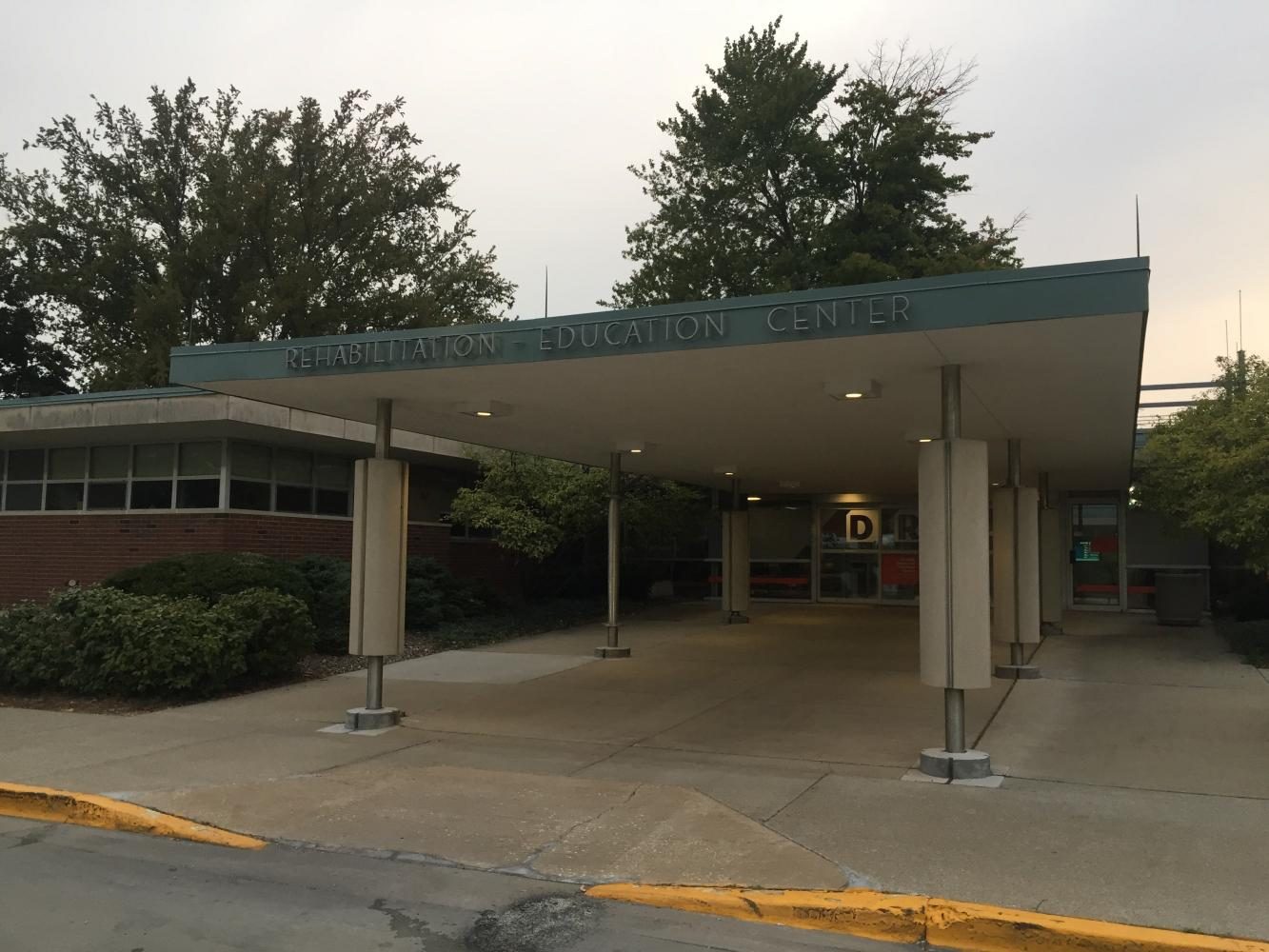Highlighting the importance of mental health among students with physical disabilities
The Disability Resources and Educational Services offers resources to those with disabilities at the University. On Thursday, DRES will host a series of events and activities to celebrate Global Accessibility Awareness Day.
September 18, 2017
September is National Suicide Prevention Awareness month, and one graduate student is trying to make sure that those at the University with disability realize their importance.
Kathleen Downes, a New York native, graduated from the College of Applied Health Sciences in 2015 and is now a master’s student in social work at the University.
Downes, who has cerebral palsy, said that she came to the University due to its history of accommodating those with physical disabilities like herself.
She is interning with University Housing’s Social Justice and Leadership Education, and said that she hopes to raise the awareness for disability justice issues and increase the amount of disability-related curriculum for University Housing staff and students.
Recently, she has been reaching out nationwide to obtain written letters from others with disabilities that share their personal stories and encourage people with disabilities who may struggle with depression to realize the value in their life.
Get The Daily Illini in your inbox!
The letters obtained, she said, will be put onto a bulletin board which is planned to be displayed to those within University Housing this month.
“It’s important to support each other and lift each other up (within the University’s disabled community),” she said. “We need to be there for each other and realize that we’re in the boat.”
Downes said she also hopes to highlight the letters received through an online suicide prevention campaign, LiveOn, with the bulletin board.
The campaign, developed by the Center for Disability Rights, purposes itself to encourage disabled people dealing with depression and suicidal thoughts by “telling the stories of disabled lives well lived,” through videos and letters.
“When I heard about the LiveOn campaign,” said Downes, “I thought, ‘That’s awesome. That’s something I want to be a part of.’ We live in a society that is in so many ways discouraging to us . . . It’s important to remind others with disabilities that we can have a good life, in spite of and because of our disabilities.”
Depression among the disabled, she said, more often stems from external issues such as burdensomeness, social exclusion and lack of accessibility rather than one’s actual disability.
“We’re put in a place where we have to deal with a lot of anxiety,” she said. “Whether it’s dealing with caregivers and medical realities, or transportation access, or dealing with discrimination or dealing with uncertainty about finding a job.”
Dominick Evans, a leading organizer of LiveOn, said that a reason behind the social stigma of disabilities is because of the way media portrays their lives. Evans said he encourages more character diversity for disabled roles in film, along with using actual disabled actors to perform them.
“We don’t see disabled people that much on television,” he said. “And when we do, it’s always played by non-disabled people . . . And we need to see them in stories that are not just about how they’re overcoming a disability or how their disability is horrible.”
Lauren Bryant, a sophomore in general studies, said that though she has not experienced depression, many of her friends within the disabled community have.
“It’s really hard,” said Bryant. “There aren’t a lot of resources that are open to us as disabled people, and people don’t understand the unique circumstances behind having depression along with a disability.”
Bryant also said that public perception of those who are disabled tend to affect how they view themselves.
“It’s a pity thing,” she said. “People look at someone with a disability and they think, ‘God, I would rather kill myself than be like them.’ And that’s disheartening. I’ve had people tell me that they feel sorry for me and that bothers me a lot because I don’t think I’m someone that you should feel sorry for.”
Bryant said that she has been in a wheelchair her entire life due to Osteogenesis Imperfecta type III, a genetic disorder which increases bone fragility. She has incurred close to 300 bone fractures as a result.
She also deals with cervical scoliosis, which results in an abnormal curvature of the spine, particularly around the neck region, and respiratory issues which resulted in life-threatening infections last year.
“My life is still really, really good,” she said, despite her conditions. “I have a lot of things I have to deal with besides being a 22-year-old college student, but it’s not the worst thing that can happen to somebody.”
Bryant said she believes that the public mindset on disability would be hard to change, but advises those to not be afraid to communicate with the University’s disabled community – and even mess up doing so.
“People are worried that they’ll make a mistake when interacting with disabled people,” she said. “So long as you’re continuously trying to educate yourself, it’s fine if you make an honest mistake. We all screw up in our everyday interactions with people.”







